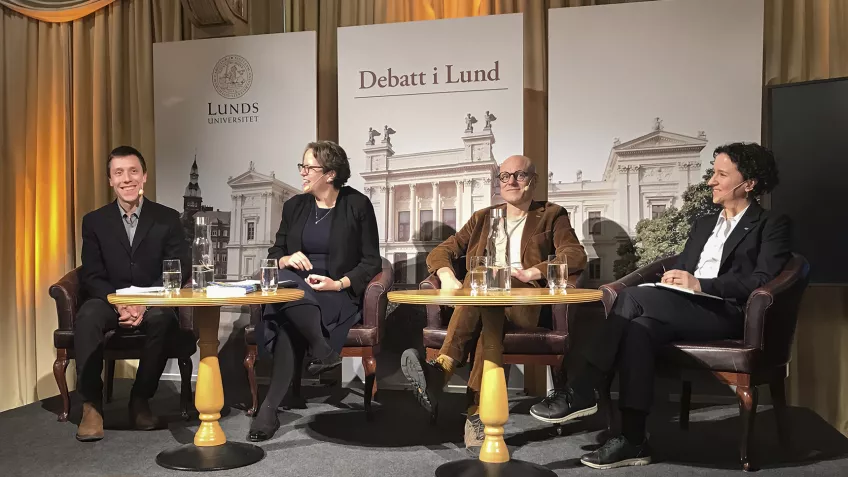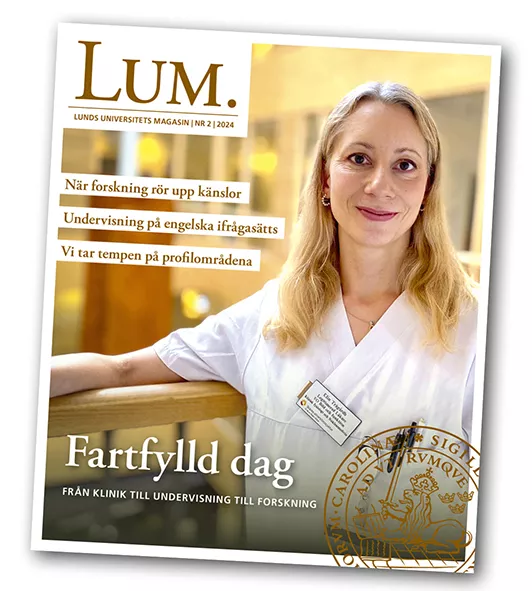The panel consisted of sustainability researcher Kimberly Nicholas, sociologist Daniel Lindvall who researches democracy and social movements, doctoral student in solar energy David Alcer and Jessica Jewell, who researches energy transition. They all agreed that they have a duty to communicate their research, especially established researchers with permanent employment. It is in the way they should do this that opinions differed.
“Humanity is in a crisis, so our communication must reflect this,” says David Alcer, famous for storming the stage during Loreen’s performance at Melodifestivalen, a Swedish singing competition to decide the country’s Eurovision entry. Holding up a sign saying “Restore our wetlands”, he wanted to highlight a quick and effective method to reduce emissions of greenhouse gases.
Kimberly Nicholas spends a lot of her time on external engagement by publishing newsletters and popular science books, giving talks and appearing on panels. She pointed to research that shows that the public’s trust is not affected when researchers engage in activism.
“People want researchers to show the way. It is not objectivity that ensures trust in research, but rather confidence in our results.”
Risks as researchers become activists
Jessica Jewell however sees risks in researchers becoming activists and would hesitate to participate in an action for specific measures.
“There is already great awareness of what needs to be done. But the decisions are difficult,” she said, pointing to the fact that the IPCC presented 200 different scenarios that could lead to reduced climate change. “It is the task of the politicians to weigh up different interests against each other.”
Daniel Lindvall argued that civil disobedience has often hastened important changes, such as Rosa Park’s acts of defiance which paved the way for the American civil rights movement in the 1960s. But he also pointed to instances in which protests have delayed important decisions, such as Emmeline Pankhurst and the British suffragettes’ militant fight for women’s right to vote.
He would not participate in certain types of activism himself. For example, he chose not to sign a joint letter by researchers calling for tougher measures on the climate.
“I didn’t want to lend my researcher title to it as I am not a climate researcher,” he said.
Standing up for science
David Alcer does not agree that researchers taking action to increase people’s awareness is political:
“They are standing up for science,” he said. “There is no such thing as neutrality when it comes to the climate. Not taking a stance is also a form of stance-taking, and is an acceptance of the status quo.”
Jessica Jewell argues that neutrality is the wrong word, researchers must be independent judges of information. She is worried that activism among researchers may lead to a polarised and crude debate about findings.
“We can’t replace scientific debates with whoever screams the loudest or has the most followers on Twitter. That increases the risk that the right research doesn’t get heard. We do have to be very clear when we agree, however,” she says.
Watch the debate here www.debattilund.se




